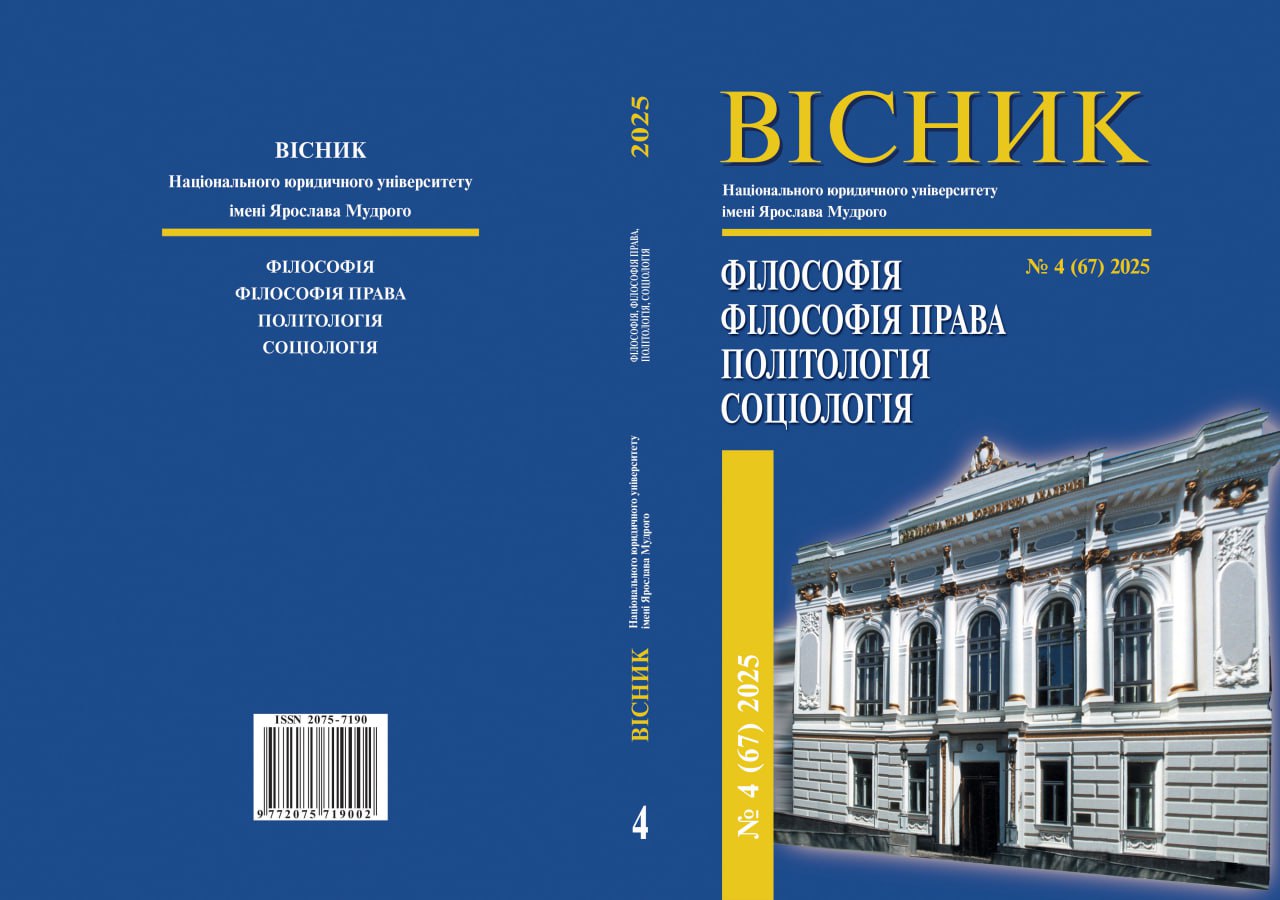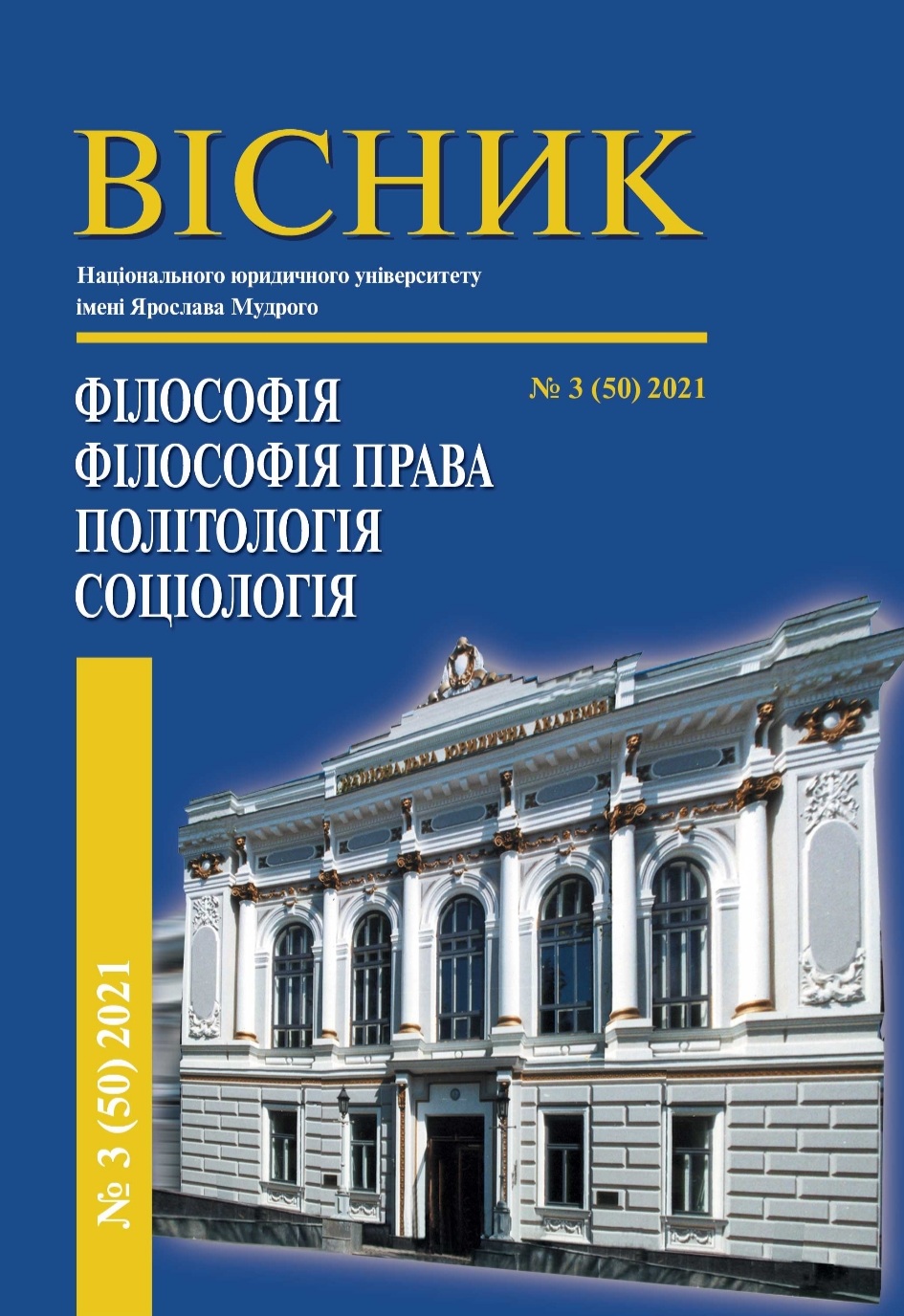КІБЕРКОНФЛІКТ ТА ПРАВОВЕ ПОЛЕ ЙОГО ІСНУВАННЯ: СПРОБА ФІЛОСОФСЬКО-ПРАВОВОГО ОСМИСЛЕННЯ
DOI:
https://doi.org/10.21564/2663-5704.67.342243Ключові слова:
кіберконфлікт, кіберпростір, міжнародне право, міжнародне гуманітарне право, кіберлегалізмАнотація
Публікація присвячена кіберконфлікту та правовому полю його існування. Наголошується, що головною науковою проблемою є відсутність єдиного розуміння кіберконфлікту та його характерних рис. У свою чергу це створює певну проблему створення правового поля його існування. Головною причиною цього є специфічність кіберконфлікту. Таким чином, показується, що проблема правового поля кіберконфлікту залишається відкритою та потребує нагального вирішення.
Посилання
Kushwaha, N., Giles, K., Singer, T., Watson, B. (2021). Cyber Personhood. 13th International Conference on Cyber Conflict (CyCon) - Going Vira: proceeding’s 13th International Conference on Cyber Conflict (CyCon) - Going Viral. Tallinn, 275–289.
Lorents, P., Ottis, R. (2010). Knowledge based framework for cyber weapons and conflict. International Conference on Cyber Conflict: proceeding’s International Conference on cyber conflict. Tallin, 129–142.
Cornish, P. (2019). Deterrence and the Ethics of Cyber Conflict. Ethics and Policies for Cyber Operations. Philosophical Studies Series, 124, 1–16.
Taillat, S. (2019). Disrupt and restraint: The evolution of cyber conflict and the implications for collective security. Contemporary Security Policy, 40 (3), 368–381.
Leuprecht, C., Szeman, J., Skillicorn, D. (2019). The Damoclean sword of offensive cyber: Policy uncertainty and collective insecurity. Contemporary security policy, 40 (3), 382–407.
Shandler, R., Canetti, D. (2024). Introduction: Cyber-conflict – Moving from speculation to investigation. Journal of Peace Research, 61(1), 3–9.
URL: https://journals.sagepub.com/doi/10.1177/00223433231219441.
Kallberg, J., Cook, T. (2017). The Unfitness of Traditional Military Thinking in Cyber. IEEE ACCESS, 5, 8126–8130.
Dong, J., Chen, S., Ding, F., Zhuo, J., Hao, M. (2025). Spatiotemporal characteristics and drivers of global cyber conflicts. Humanit Soc Sci Commun, 12. URL: https://www.nature.com/articles/s41599-025-04897-7.
Liebetrau, T. (2022). Cyber conflict short of war: a European strategic vacuum. European Security, 31 (4), 497–516. URL: https://www.tandfonline.com/doi/citedby/10.1080/09662839.2022.2031991?scroll=top&needAccess=true.
Brown, J., Fazal, T. (2021). «SorryNotSorry»: Why states neither confirm nor deny responsibility for cyber operations. European Journal of International Security, 6 (4), 401–417.
Giles, K., Hartmann, K. (2019). «Silent Battle» Goes Loud: Entering a New Era of State-Avowed Cyber Conflict. 11th Annual International Conference on Cyber Conflict (CyCon) - Silent Battle: proceeding’s 11Th international conference on cyber conflict (СyСon) – Silent Battle. Tallinn, 23–25.
Hartmann, K., Giles, K. (2020). The Next Generation of Cyber-Enabled Information Warfare. 12th International Conference on Cyber Conflict (CyCon), 233–250.
Hoisington, M. (2017). Regulating Cyber Operations Through International Law: In, Out or Against the Box? Ethics and Policies for Cyber Operations. Philosophical Studies Series, 124, 87–98.
Macák, K. (2017). From the Vanishing Point Back to the Core: The Impact of the Development of the Cyber Law of War on General International Law. 9th International Conference on Cyber Conflict - Defending the Core (CyCon): proceeding’s 9th International conference on cyber conflict: defending the core (CyCon). Tallinn, 135–148.
Haataja, S. (2024). Cyber operations and automatic hack backs under international law on necessity. Computer law & security review, 53.
URL: https://www.sciencedirect.com/science/article/pii/S0267364924000591?via%3Dihub
Sohail, H. (2022). Fault Lines In The Application Of International Humanitarian Law To Cyberwarfare. Journal of digital forensics security and law, 17 (1). URL: https://commons.erau.edu/jdfsl/vol17/iss1/8.
Leggat, H. (2020). Cyber Warfare: An Enquiry Into the Applicability of National Law to Cyberspace. 17th Australian Cyber Warfare Conference (CWAR); proceeding’s 17th Australian Cyber Warfare Conference (CWAR). Tallinn, 28–46.
Cho, Y., Chung, J. (2017). Bring the State Back In: Conflict and Cooperation Among States in Cybersecurity. Pacific focus, 32 (2), 290–314.
Osawa, J. (2017). The Escalation of State Sponsored Cyberattack and National Cyber Security Affairs: Is Strategic Cyber Deterrence the Key to Solving the Problem? Asia-Pacific Review, 24 (2), 113–131.
Kello, L. (2021). Cyber legalism: why it fails and what to do about it. Journal of Cybersecurity, 7 (1).
URL: https://academic.oup.com/cybersecurity/article/7/1/tyab014/6343244?login=false.




